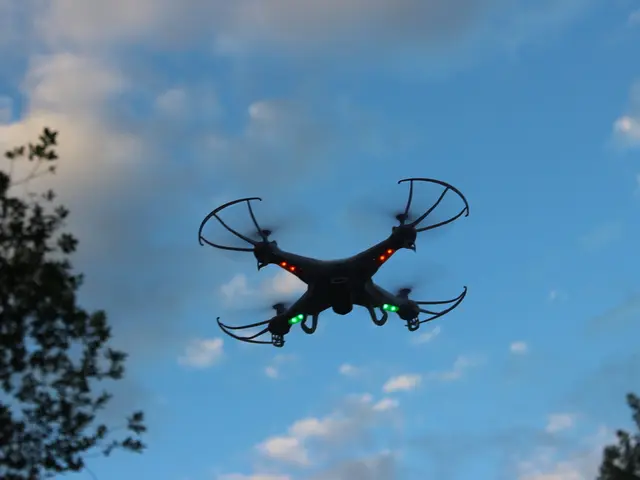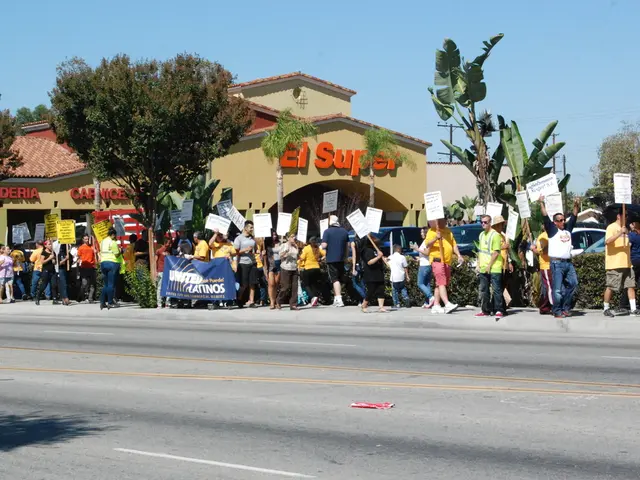AI Rights and the Copyright Quandary
In the rapidly evolving world of Artificial Intelligence (AI), traditional copyright law struggles to provide clear guidance. However, India is leading the way in adopting a new approach known as the distributive copyright philosophy. This philosophy, which emphasises fair and equitable sharing of copyright benefits among creators, users, and society, is shaping the country's regulatory and legal approach to AI.
The distributive copyright philosophy is evident in various aspects of India's copyright law. For instance, policymakers and legal scholars argue for adapting copyright rules to allow AI training datasets to include copyrighted materials under fair use or similar exceptions. This approach ensures that AI development can flourish without excessive restrictions, fostering innovation and creativity.
India's approach to regulating digital markets, including AI, also reflects this philosophy. The country's focus on equitable market dynamics and fairness, as opposed to pure competition law, is seen in discussions around supplementing the Indian Competition Act with provisions to prevent monopolistic practices by big tech, which also affects AI ecosystems and copyright use.
Ethical considerations drawn from information ethics also play a significant role in AI applications, including those involving copyrighted content. Transparency, accountability, and human oversight are emphasised, underlining the distributive responsibility to users and rights holders alike.
The Indian government's digital governance and regulatory initiatives reflect an intention to foster AI innovation while ensuring that digital rights, including copyright, support fair access and contestability in the market. While India has not enacted a fully specific AI copyright regime, the discourse embodies a distributive philosophy by striving for a balanced copyright framework that both protects rights and allows AI-driven innovation.
Recent court rulings, such as the case Andrea Bartz & Ors. v. Anthropic PBC, have also supported this philosophy. The court's ruling placed heavy emphasis on the transformative use factor within copyright's fair use exception, a decision that may influence how India draws the line between copyright and generative AI.
In response to the challenges posed by AI, the Indian government has formed a committee under DPIIT this year to investigate potential amendments to the Copyright Act, 1957. The committee is tasked with crafting text and data-mining exceptions to the fair dealing provision in the Copyright Act, 1957, and looking within as much as learning from comparative exercises.
India's distributive copyright model, which was embodied in the 2012 amendments to Indian copyright law, could offer a better resolution to the tussle between the content industry and AI players. These amendments entitled music composers and lyricists to revenues from their work despite complete assignment, a move that embodies the same philosophy of distributive copyright.
As AI companies run into the problem of a data wall, wherein they are running out of publicly available data to train their models on, policy conversations on adapting Indian copyright law to the AI age focus on crafting text and data-mining exceptions to the fair dealing provision in the Copyright Act, 1957. Fair use has been copyright law's most impactful response yet, carving out limited exceptions to an expansive property right.
In summary, the distributive copyright philosophy in India underpins a regulatory and legal approach aiming to balance copyright owners’ interests with fair access needed for AI development, while addressing competitive fairness and ethical governance of AI systems. This approach could shape future copyright law reforms to address AI uses, offering a unique solution to the challenges posed by AI in the copyright landscape.
Read also:
- 1. Key Points for August 14: Gathering in Alaska, Immigration Enforcement (ICE), Financial service Zelle, Infowars, and Air Canada Airline Incidents
- Automobile manufacturer IM Motors reveals an extended-range powertrain akin to installing an internal combustion engine in a Tesla Model Y.
- Conflict Erupts Between Musk and Apple Over Apple Store's Neglect of Grok
- Partnership between MTN South Africa and SANTACO aims to advanced transportation systems and stimulate economic opportunities for the masses in South Africa.








